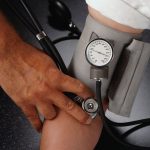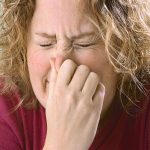
The hangover is bad enough. But for binge-drinking young people, embarrassing social media posts can be another headache. College students often show signs of social media “addiction” and can suffer significant consequences, according to the authors of a new study. “During these times when young students are feeling disinhibited by alcohol, they may be even more likely than usual to post inappropriate material without considering the future impact,” said lead researcher Natalie Ceballos. “In some cases, these sorts of mistakes have even influenced college admission and later job applications,” said Ceballos, an associate psychology professor at Texas State University. The study included 425 undergraduate students, ages 18 to 25. Compared with students who’d never gone on a drinking binge, binge drinkers were more likely to have made social media posts while drinking or drunk. Binge drinking was defined as having five or more drinks at one time for men and four or more for women. Binge drinkers were also more likely to use more social media platforms, to feel that social media was part of their identity, and to have experienced negative fallout from their social media use, something the researchers referred to as social media addiction. The study is published recently in the Journal of Studies on Alcohol and Drugs. “These findings suggest that in terms of common brain reward mechanisms, perhaps when students… read on >























-300x200.jpg)













